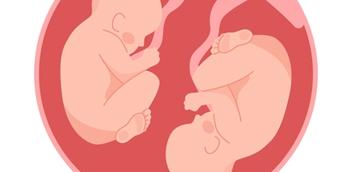
Hormone Therapy Discontinuation Linked to Increases in Sleep Disturbances
Cessation of hormone therapy in menopausal women may result in sleep disturbances, according to a new study in Menopause. Since the hormone therapy has been associated with the alleviation of sleep problems in women experiencing menopausal symptoms, Dr Sarah E Tom, Interdisciplinary Women’s Health Research (IWHR) Scholar at the University of Texas Medical School, and colleagues sought to determine the resulting sleep effects during cessation of hormone therapy.
Cessation of hormone therapy in menopausal women may result in sleep disturbances, according to a new study in Menopause. Since the hormone therapy has been associated with the alleviation of sleep problems in women experiencing menopausal symptoms, Dr Sarah E Tom, Interdisciplinary Women’s Health Research (IWHR) Scholar at the University of Texas Medical School, and colleagues sought to determine the resulting sleep effects during cessation of hormone therapy.
To do so, the researchers conducted a secondary analysis using data from the Radiological Evaluation and Breast Density (READ) randomized controlled trial. This study included 1,405 women between 45 and 80 years old (average age = 60 years old) who were randomly assigned to groups that continued hormone therapy (N=518) or suspended therapy for one month (N=452) or two months (N=435). As part of the trial, women completed baseline and follow-up questionnaires that assessed sleep problems. A modified General Sleep Disturbance Scale was used to evaluate such sleep issues as trouble falling asleep, waking while sleeping, waking too early, sleeping poorly, and waking not rested. Menopausal symptoms and general demographic variables were also collected.
At baseline, menopausal symptoms were reported low among all groups. Sleep disturbances were similar across the groups; the main reported complaint was waking while sleeping with an average occurrence of 4.5 times per week. Most women did not report use of any sleep aids.
At follow-up, women in the therapy suspension groups reported higher sleep complaints than their counterparts in the continuation group, with greater complaints in the two-month suspension group as compared to the one-month suspension group. Specifically, suspension of hormone therapy was associated with increased reports of trouble falling asleep, waking while sleeping, waking too early, sleeping poorly, being unsatisfied with sleep, not rested upon waking and too little sleep; the differences between the groups were moderate. The Figure shows some of the key sleep disturbance increases in the two-month suspension group. In a secondary analysis to ascertain effect modification, Tom and colleagues found that age, type of hormone therapy, and duration of hormone therapy use did not affect outcomes.
Figure. Increase in disrupted sleep (by percent more days) in two-month suspension group compared to continuation group (Click image to open full size.)
In discussing their findings, the researchers explained, “Increased vasomotor symptoms after HT [hormone therapy] suspension may mediate the relationships between HT suspension and subsequent sleep problems, or a common underlying factor such as sympathetic activation may influence both vasomotor symptoms and sleep problems… Overall, women who experienced a significant resurgence of vasomotor symptoms at follow-up, defined as having a change from baseline to in the highest quarter, were more likely to also experience increased sleep quality index scores.”
However, they also acknowledged the potential effects of estrogen and progesterone on sleep. “Progesterone has an overall sedative effect, and exogenous estrogen has been shown to decrease latency to sleep onset, decrease awakening after sleep onset, and increase total sleep time,” they explained. “Although estrogen and progesterone may directly influence specific sleep processes, sex steroids may also influence sleep through effects on general central nervous system arousal and/or thermoregulation.”
Regardless of what seems to cause the more frequent sleep disturbances after hormone therapy suspension, Tom and colleagues agree that clinicians need to be aware of this phenomenon and be prepared to advise patients accordingly. They concluded, “Women who choose to discontinue HT use may need specific assistance to manage sleep problems after HT discontinuation.”
More Information
Related Content
References:
References:
Tom SE, Anderson ML, Landis CA, et al. Sleep problems after short-term hormone therapy suspension: secondary analysis of a randomized trial. Menopause. 2011 Jul 16. [Epub].
Newsletter
Get the latest clinical updates, case studies, and expert commentary in obstetric and gynecologic care. Sign up now to stay informed.










